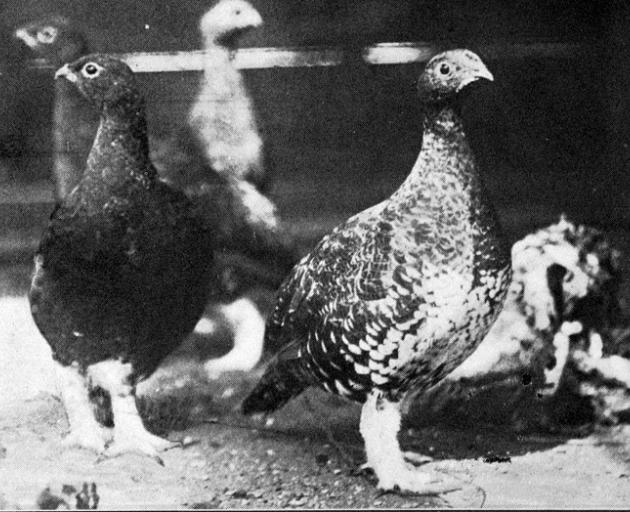
The first live grouse brought to New Zealand, donated by Lady Liverpool, to be liberated in Tongariro National Park. — Otago Witness, 30.9.1924
Failed to return borrowed Kodak
A youth aged 19 years appeared before the City Police Court yesterday morning on a charge of stealing a Kodak camera, the property of the Kodak (Australasia) Proprietary Ltd. Chief-detective Lewis prosecuted and Mr A.C. Hanlon appeared for the accused. The chief detective said that the lad had worked with the company for two years and had finished on February last. Cameras had been missed and on investigation the accused was found to have one in his possession. There were about half a dozen missing, but he could not, of course, say that the accused had taken them. Nothing was previously known against the lad. Mr Hanlon said that under a previous manager employees were permitted to borrow parts of stock occasionally to gain experience in their work. This young fellow took the camera, a damaged one, away, and did not take it back again. He had not used it as the boy’s mother had seen it lying in the drawer day after day for months. He came of a good family and in view of his previous good character he would ask that he be given lenient treatment. It was really a case of getting possession honestly and converting it. No attempt had been made to sell the camera. The Magistrate said that an unfortunate suggestion that must be taken note of was that others were missing. The boy could not be blamed for these, but the fact could not be disregarded. This served to show the difficulty of tracing missing goods, though the police did happen to trace one in this case. Mr Hanlon: It would have taken no great skill by the detectives to trace others if this lad had taken and sold them. In reply to a question from the bench the Chief detective said that stock-taking had revealed that nine folding and 21 Brownie cameras were missing. It was quite possible, however, that a sale could have been made and no record made of it, in which the case the cameras would have to be entered as missing at stock-taking time. The probation officer (Rev. G.B. Moreton) said that the accused had a good home life. It seemed to be more a case of carelessness than anything else. He had questioned the lad very closely regarding the other cameras and he still maintained that he had taken the one with the previous manager’s permission. The Magistrate said that the defendant had pleaded guilty to the theft of a camera which, he said, he had taken for experimental purposes, and retained. Still, considering his youth and the probation officer’s report, he thought a warning would suffice. He would be convicted and ordered to come up for sentence when called upon within 12 months’ time. Witness’s expenses amounting to 15 shillings would have to be paid and the damage to the camera, amounting to 17s 6d, would also have to be paid. The Magistrate consented to make an order prohibiting publication of the accused’s name. He was a young man, and would be given a chance. — ODT, 20.9.1924
Compiled by Peter Dowden











